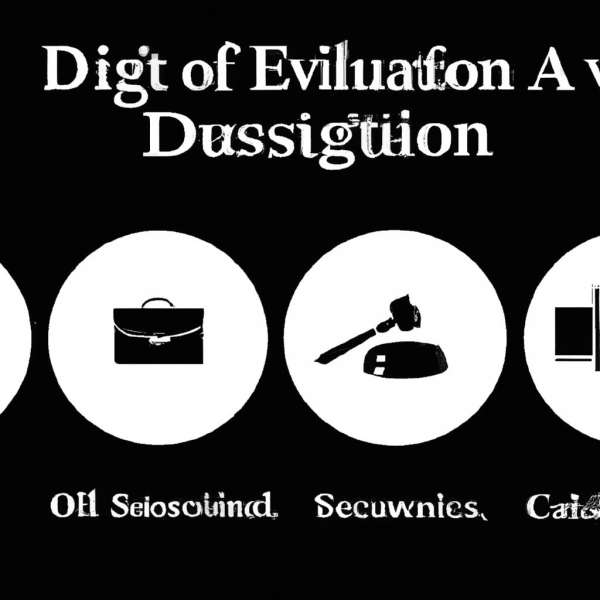The Future of Class Action Lawsuits: Charting the Path Forward
In a time when collective advocacy is more potent than ever, class action lawsuits find themselves at the intersection of legal tradition and contemporary innovation. These legal tools, crafted to empower individuals with shared grievances, have historically acted as a defense against corporate misconduct and systemic injustices. However, as societal dynamics evolve and technology transforms legal advocacy, the future of class action lawsuits presents both opportunities and complexities. This article embarks on an exploration of these changing paradigms, investigating the challenges and prospects that lie ahead. We will examine emerging trends, significant legal precedents, and technological advancements poised to revolutionize the initiation and adjudication of collective claims. Join us as we unravel the future of class action lawsuits, envisioning their role in a world driven by collaboration, inclusivity, and justice for all.

Transforming Class Action Lawsuits in the Digital Era
As technology becomes increasingly integrated into everyday life, the mechanisms of class action lawsuits are also evolving. The digital age has not only changed how information is shared but has also redefined potential grievances and their legal redress. With the advent of social media, companies are under greater scrutiny as consumers quickly unite over perceived injustices. This shift has introduced a unique set of challenges and opportunities for class action litigation.
Key factors driving the evolution of class action lawsuits in today’s digital landscape include:
- Enhanced Accessibility: Digital channels now enable easier communication and engagement with class members.
- Accelerated Discovery: Electronic data facilitates faster evidence gathering, making it simpler to identify patterns of misconduct.
- Global Connectivity: Technology connects consumers worldwide, raising questions about applicable laws and jurisdiction.
- Emerging Forms of Harm: Issues like data breaches, privacy violations, and online fraud necessitate innovative class action strategies.
Moreover, online platforms streamline the process of filing claims and obtaining legal representation. Consider the following comparison between traditional and modern digital practices in class action lawsuits:
| Aspect | Traditional Class Action | Digital Age Class Action |
|---|---|---|
| Communication | Mailing Lists | Social Media Outreach |
| Evidence Gathering | Physical Documents | Electronic Data |
| Geographical Boundaries | Local Jurisdictions | Global Participation |
| Settlement Distribution | Checks | Digital Payments |
As new technologies emerge and digital platforms become more entrenched in consumer behavior, attorneys and advocates must rethink how class actions are initiated, managed, and resolved. This evolution not only requires a reassessment of legal strategies but also invites discussions on ethical considerations, transparency, and the overall effectiveness of class actions in delivering justice in a rapidly advancing world.

Navigating the Future: Challenges and Opportunities in Class Action Lawsuits
The changing legal landscape presents both challenges and opportunities for class action lawsuits. As societal norms evolve and technology advances, the framework governing these collective legal actions must adapt. Increasing scrutiny from courts and legislators on the validity and ethics of class action suits often complicates the path forward.
In the pursuit of justice, plaintiffs often face significant hurdles. However, the digital era presents new opportunities to revolutionize class action lawsuits.
Key challenges in class action lawsuits include:
- Increased Regulatory Oversight: Stricter regulations demand more substantial evidence of commonality and typicality, complicating class certifications.
- Technological Challenges: The surge in data privacy issues and digital platforms necessitates innovative aggregation strategies.
- Public Trust Issues: Growing skepticism towards large-scale litigation can deter potential plaintiffs from participating.
On the flip side, several promising opportunities are emerging for class action lawsuits:
- Online Class Action Platforms: Digital forums can mobilize groups and enhance participation through improved communication tools.
- Legislative Changes: Advocacy for laws that promote accessibility and fairness in class actions can encourage more individuals to come forward.
- Data-Driven Approaches: Utilizing data analytics can streamline the identification of viable class actions and safeguard the rights of affected individuals.
As the legal landscape evolves, all stakeholders, including attorneys and plaintiffs, must stay alert and adaptable. By embracing these changes, they can effectively navigate the complexities of class action lawsuits and strive for a system that balances justice and efficiency.

Empowering Consumers: The Role of Technology in Class Actions
In an age of rapid technological progress, the realm of class action lawsuits is transforming to empower consumers like never before. Technology is not merely a tool; it is becoming a crucial force that enhances accessibility, efficiency, and transparency in legal processes. With advanced platforms and digital tools, consumers can now unite their voices and interests more effectively against corporations.
Here are some key technological advancements reshaping the consumer experience in class actions:
- Virtual Platforms: Online platforms enable consumers to join class actions easily through user-friendly interfaces, connecting them with legal representatives and each other.
- Data Analytics: Advanced data mining technologies help identify potential class action cases by analyzing consumer behavior, complaints, and patterns of misconduct.
- Automated Communication: Systems for updates via email or text ensure that all participants stay informed throughout the legal process, enhancing engagement and trust.
Additionally, the integration of blockchain technology in legal frameworks has the potential to revolutionize settlement processing. By ensuring secure, transparent transactions, blockchain can eliminate delays and disputes regarding the distribution of funds to class members. Some potential benefits include:
| Feature | Benefit |
|---|---|
| Transparency | All transactions are visible and verifiable, promoting trust among consumers. |
| Efficiency | Automated smart contracts can expedite settlement distributions. |
| Security | Decentralized systems minimize risks of fraud and unauthorized access. |
The combination of these technologies is not just reshaping how class actions are conducted; it is creating a more robust platform for consumer rights. With these innovations, individuals now have greater capabilities to challenge injustice collectively, marking a significant shift towards a more equitable legal process.

Best Practices for Law Firms: Adapting to Future Trends in Class Litigation
As class action lawsuits continue to evolve with the changing legal landscape, law firms must proactively adapt their strategies to remain effective and competitive. Implementing innovative technologies is no longer optional; it’s essential. Automated case management systems, predictive analytics tools, and AI-driven research capabilities can significantly enhance a firm’s efficiency and accuracy. By embracing these technologies, law firms can streamline processes, reduce costs, and ultimately improve client satisfaction.
In addition to technological advancements, legal firms should also pay close attention to demographic shifts within their client base. Increasingly, clients are seeking more personalized and transparent communication regarding their cases. Establishing **client-centric practices** is vital. Consider implementing the following practices to enhance client interaction:
- Regularly scheduled updates via email or client portals
- Interactive webinars for educating clients on their rights and case processes
- Feedback mechanisms to understand client expectations and experiences
Furthermore, the emergence of social media as a communication channel cannot be ignored. Law firms should create a strong online presence, utilizing social platforms not just for marketing but also as tools for community engagement and client education. Creating relevant, shareable content that resonates with potential clients can help establish expertise and trust.
| Trend | Impact on Class Litigation |
|---|---|
| Data Privacy Regulations | Necessitates firms to bolster data protection protocols |
| Diversity and Inclusion | Broadens viewpoints, resulting in fairer case resolutions |
| Remote Court Proceedings | Enhances accessibility and adaptability for clients and attorneys |
By staying alert to these trends and strategically adapting their operations, law firms can not only navigate but also excel in the evolving realm of class action litigation. Success depends on foreseeing shifts in client expectations and the broader legal landscape, ensuring the firm is prepared for future challenges.
Insights and Conclusions
As we approach a new chapter in legal advocacy, the future of class action lawsuits presents both hurdles and opportunities. With rapid technological advancements and changing societal norms shaping our perception of justice, these collective actions may soon transcend their traditional boundaries. Despite the uncertainties, one constant remains: the collective voice continues to hold significant influence within and beyond the courtroom.
As we traverse this new landscape, stakeholders—from plaintiffs to corporations, lawmakers to advocates—must stay vigilant. The ethical considerations, regulatory changes, and potential for new legal precedents will not only influence how class actions are conducted but also redefine accountability in our increasingly interconnected world.
In the years ahead, it will be crucial to keep an eye on emerging trends, embrace technological innovations, and encourage open dialogue to ensure that class action lawsuits remain an effective and just tool for collective justice. Whether defending consumer rights, addressing corporate wrongdoing, or challenging systemic injustices, the future of class actions holds the potential for a more equitable legal landscape—provided we have the foresight to shape it wisely.
Revolutionizing Justice: The Future of Class Action Lawsuits
The Changing Landscape of Class Action Lawsuits
Class action lawsuits have long served as a powerful mechanism for individuals to collectively address legal grievances against corporations or other large entities. Historically, these lawsuits have been pivotal in securing justice in cases ranging from environmental protection to consumer rights. However, technologies and innovative practices are revolutionizing how class action suits are managed, filed, and resolved.

Digital Platforms Transforming Class Actions
In the digital age, legal tech platforms are drastically improving the efficiency and reach of class actions. These platforms leverage tools such as artificial intelligence (AI), big data analytics, and blockchain to streamline processes and foster transparency.
- Artificial Intelligence (AI): AI-powered tools assist in document review, facilitating the identification of relevant evidence more swiftly.
- Big Data Analytics: Leveraging large datasets helps in identifying potential class members and understanding case merits.
- Blockchain Technology: Blockchain ensures secure, transparent, and tamper-proof documentation of evidence and legal processes.
Example: LegalZoom’s Use of AI
LegalZoom has incorporated AI tools to facilitate quicker review and classification of legal documents. Such automation reduces hours of manual labor, thereby cutting down on costs and accelerating case timelines.
Innovative Funding Models
One crucial factor revolutionizing class action lawsuits is the emergence of innovative funding models. These models democratize access to justice by enabling individuals to pursue legal cases without bearing the high upfront costs typically associated with litigation.
Third-Party Litigation Funding
Third-party litigation funding (TPLF) has proven to be a game-changer. External investors cover litigation costs in return for a share of the settlement or award. This approach minimizes financial risks for plaintiffs and ensures that meritorious cases are not sidelined due to lack of funds.
Table: Comparison of Traditional vs. Third-Party Litigation Funding
| Aspect | Traditional Funding | Third-Party Funding |
|---|---|---|
| Initial Costs | High | Low |
| Accessibility | Limited | Broad |
| Risk | Bears by Plaintiffs | Shared with Funders |
| Case Merits | Variable | High |
Impact of Technological Innovations on Case Settlements
Technology not only impacts the process of class action lawsuits but also significantly influences case settlements. From online dispute resolution platforms to predictive analytics, technological advancements streamline settlements, making them faster and often more favorable for plaintiffs.
Online Dispute Resolution (ODR)
Platforms like FairClaims and Cybersettle offer online dispute resolution services, which help parties negotiate and settle cases efficiently. By reducing the need for physical court appearances, these tools minimize legal expenses and expedite resolutions.
Predictive Analytics in Settlements
Predictive analytics tools assess historical case data to provide probabilities on potential outcomes. Attorneys can leverage these insights to negotiate better settlements, saving time and resources.
The Role of Social Media in Class Action Participation
Social media has become a pivotal tool in modern-day class action lawsuits. It serves as a powerful medium to raise awareness, attract potential class members, and garner public support.
Rallying Public Support
Effective social media campaigns can influence public opinion and apply pressure on defendants. By sharing compelling narratives through platforms like Facebook, Twitter, and Instagram, plaintiffs can rally widespread support and amplify the impact of their lawsuit.
Case Study: Johnson & Johnson Talcum Powder Litigation
The talcum powder case against Johnson & Johnson saw significant mobilization of public support through social media. Plaintiffs shared their personal stories and experiences, which helped in attracting media attention and widening the lawsuit’s reach.
Emerging Trends and Future Predictions
As we look to the future, several trends are likely to shape class action lawsuits in unprecedented ways. From virtual reality (VR) courtroom experiences to predictive legal services, the intersection of law and technology holds immense potential.
Virtual Courtrooms
The advent of virtual courtrooms allows for remote proceedings, fostering convenience and cost-effectiveness. As technology progresses, one can anticipate more sophisticated VR experiences that simulate real-world courtrooms.
Predictive Legal Services
Future legal services will leverage advanced data analytics to predict case outcomes, offering clients tailored legal strategies. This predictive capability can optimize resource allocation and improve case success rates.
Table: Future Technologies Impacting Class Actions
| Technology | Impact |
|---|---|
| Virtual Courtrooms | Remote, cost-effective proceedings |
| VR Simulations | Enhanced trial experiences |
| Predictive Legal Services | Optimized strategies and better outcomes |
| Blockchain | Secure, transparent documentation |
Practical Tips for Navigating Modern Class Actions
For individuals considering participation in a class action lawsuit or for legal professionals managing such cases, staying informed and prepared is crucial.
For Plaintiffs
- Stay Informed: Follow updates related to your case diligently via official websites and social media channels.
- Documentation: Maintain thorough records of any relevant interactions or evidence that could support your claim.
- Leverage Technology: Utilize mobile apps and digital platforms to stay engaged and receive timely notifications.
For Attorneys
- Adopt Legal Tech: Integrate AI and big data tools into your practice to optimize efficiency.
- Utilize Funding Models: Consider third-party litigation funding to mitigate financial risks and pursue meritorious cases.
- Enhance Client Communication: Use online portals and social media to keep clients informed and engaged throughout the legal process.
Case Study: The Google Street View Wi-Fi Data Scandal
In a landmark case against Google for unauthorized data collection via Street View cars, leveraging digital tools proved essential. Attorneys involved utilized big data analytics for case research, while plaintiffs coordinated through social media platforms to bring attention to their plight.
The future of class action lawsuits promises transformative change, driven by technological advancements and innovative practices. By embracing these developments, both plaintiffs and legal practitioners can ensure a more accessible, efficient, and equitable justice system.


